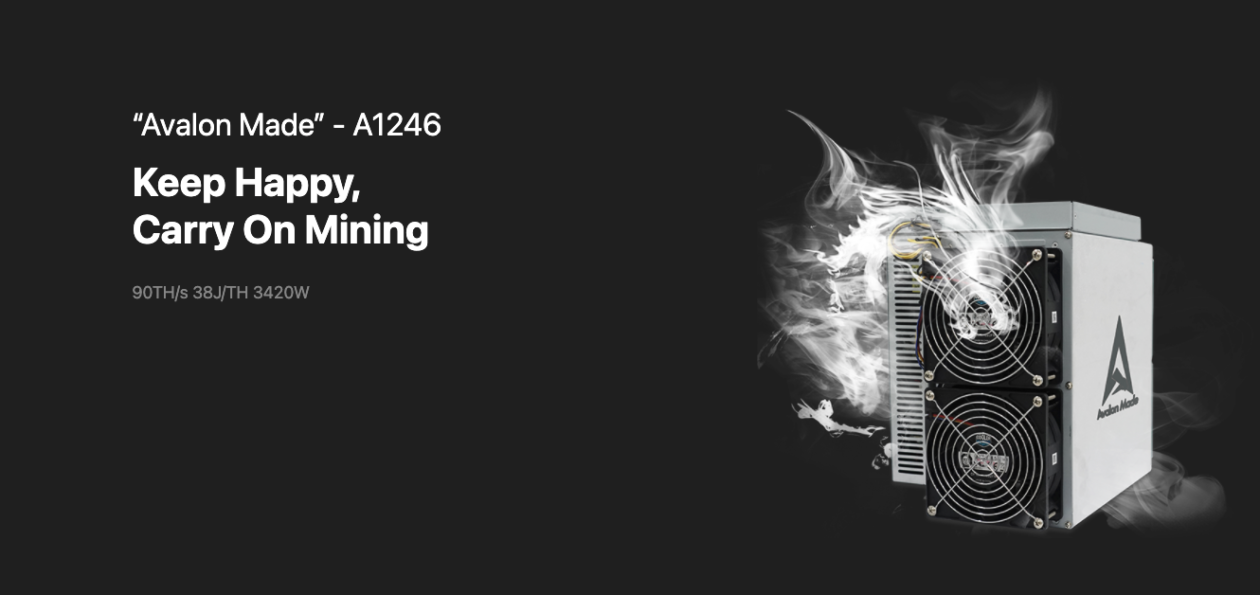Chinese cryptocurrency mining rig maker Canaan is boosting its mining sales, with another new order placed and set to ship to Canada.
The Nasdaq-listed rig manufacturer has received an order for 4,000 Bitcoin mining machines — with an aggregate operating hash power of 272 petahash per second — from HIVE Blockchain Technologies, a crypto mining company headquartered in Vancouver, according to a statement.
Canaan is expected to deliver the new machines in two batches during August and September. They will add to HIVE’s previous order with Canaan for 6,400 machines with a total operating hash power of 574 PH/s, the statement showed.
HIVE — listed on the Toronto Stock Exchange, Nasdaq and Frankfurt Stock Exchange — operates data centers in Canada, Sweden and Iceland, and has been promoting its green energy and environment, sustainability and governance strategy.
Canaan Chairman and CEO Nangeng Zhang said in the statement that the order from HIVE was “a testament to the performance of our mining machines as well as our ability to form long-term and mutually beneficial miner relationships.”
HIVE isn’t the only North American company looking to ramp up its mining operations.
Earlier this week, Nasdaq-listed Marathon Digital Holdings, one of the biggest Bitcoin mining companies in North America, announced a deal to buy an additional 30,000 mining machines from Chinese rig maker Bitmain. The new machines are expected to ship from Bitmain between next January and June. Once all are in place, Marathon will operate more than 133,000 Bitcoin mining machines, which could boost the company’s hashrate to about 12% of the Bitcoin network’s total if all machines are deployed, according to the announcement.
The new orders for mining machines come as the global Bitcoin hashrate is on an uptrend as miners pushed out by China resettle in friendlier jurisdictions and resume investing big money in mining equipment.
On Tuesday, the total hashrate reading was at 110 million terahashes per second, an increase from 84.79 million on July 3, which was the lowest since September 2019, according to data from Blockchain.com.
Starting in mid-May, soon after China intensified its crackdown on the sector, mining pools began receiving less newly mined Bitcoin, with weekly volume falling from roughly 10,000 BTC per week to under 5,000, as suggested by a research report released this week by blockchain data platform Chainalysis.
The Chainalysis report said that AntPool, Poolin, BTC.top and F2Pool — all of which have had significant operations in China — seemed to have seen the steepest declines in minting new Bitcoins, while Czech Republic-based SlushPool hadn’t seen its mining figures decline.
As the Bitcoin hashrate recovers, mining difficulty follows. Over the past weekend, Bitcoin miners faced a mining difficulty increase of 6% to 14.5 trillion at block height 693,504, after four consecutive declines since May, according to figures from BTC.com.
Bitcoin mining difficulty is a measure of how hard it is for a miner to mint new Bitcoins. The difficulty level undergoes an adjustment every 2,016 blocks — typically about every two weeks — and is affected by changes in the mining hashrate.
Meanwhile, the Ethereum network hashrate is also recovering. According to data from BitInfoCharts, the hashrate plummeted to 477.5 TH/s on June 26 from 643.8 TH/s on May 20. The reading, nonetheless, has been gradually picking up since late June, reaching 583.1 TH/s on Tuesday.
Other mining companies are also betting big on crypto mining. Genesis Digital Assets, one of the world’s earliest Bitcoin mining companies, last week announced that it had raised US$125 million in equity funding to support its expansion plans.In June, Genesis also bought 10,000 Bitcoin mining machines from Canaan. “Our strategy has always been to grow faster than the rest of the market,” Genesis Chairman Abdumalik Mirakhmedov said at the time. “Achieving this requires building and launching new data centers, expanding the capacities of our existing facilities, and installing first-class hardware.”





